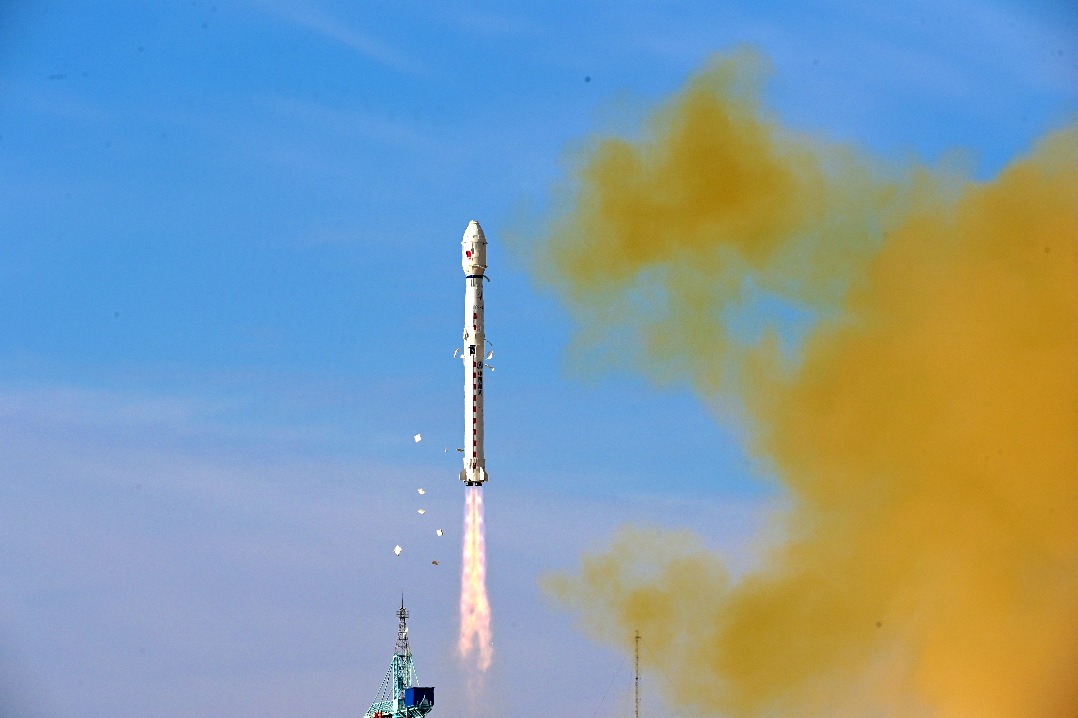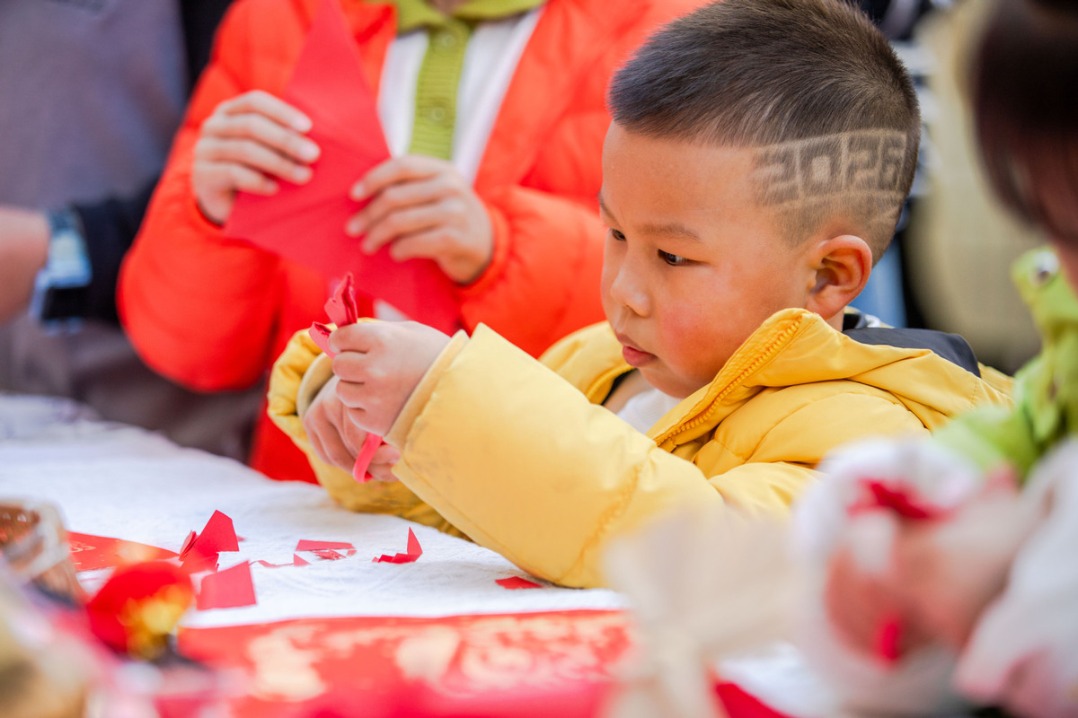Scientists deny claims COVID data was withheld


Chinese scientists have denied accusations that China deliberately withheld key information regarding the origins of COVID-19, and said the latest published study suggested that humans may have introduced the virus to the Huanan seafood market in Wuhan, Hubei province.
On Wednesday, the journal Nature published the eagerly awaited genetic analysis of swabs collected at the market from January to March 2020.The study contained over 1,300 samples from the environment and animals sold at the market, where the first COVID-19 cases were reported in China.
The data from the paper has been the subject of intense scientific debate since researchers from the Chinese Center for Disease Control and Prevention released an early non-peer-reviewed version of the study in February last year.
Last month, researchers from the center uploaded more genetic sequence data from the market to a large international database, the Global Initiative on Sharing All Influenza Data. A team of international scientists who examined the new data said they found that raccoon dogs had deposited genetic material where the virus was found.
The team hypothesized that the raccoon dogs may have been an intermediate host of the virus, and an animal-to-human spillover event took place at the market.
However, Tong Yigang, dean of the College of Life Science and Technology at Beijing University of Chemical Technology, said at a media briefing on Saturday that there is not enough evidence to support raccoon dogs as a source of the virus.
This was because none of the 457 animal swab samples, including raccoon dogs, had tested positive for the novel coronavirus, meaning no animals at the market were infected, he said.
The raccoon dog's genetic materials were discovered in environment swabs, which had 73 of 923 samples test positive. However, further analysis revealed that the viral genetic sequences isolated from the environmental samples were almost identical to those collected from early patients, Tong said.
"These findings suggest that the early COVID-19 cases from the market may have received the virus from other humans rather than animals sold at the market," Tong said, adding it is possible that humans had introduced the virus to the market and polluted the environment.
Given the issue's complexity, the study concluded that there is no definitive proof that the COVID-19 virus originated from an animal-to-human spillover event at the market.
Tracing the origins of COVID-19 recently become a highly contentious topic. In February, the United States Department of Energy changed its view about the likely origins of COVID-19 from "undecided" to suspecting a "lab leak "was behind the pandemic.
Last month, the US Senate passed a bill requiring the declassification of information related to COVID-19 origins. The bill, which prompted strong protests from China, stated the reason for the disclosure was US politicians' belief that the virus had leaked from a Chinese lab.
While there is no concrete scientific evidence for the exact origins of COVID-19, Tong said that based on the joint investigation by China and the World Health Organization in 2021, it is "extremely unlikely" that the virus had emerged from a lab leak.
Shen Hongbing, director of the China CDC, said that China has maintained a scientific attitude regarding origins-tracing of COVID-19, and has proactively communicated and collaborated with WHO. However, some WHO officials had recently accused China of withholding key information regarding the origins of COVID-19, and thus denied the validity of the conclusions reached in the joint study, he said.
"These words completely go against the scientific spirit, and they are disrespectful to the scientists from around the world who participated in the early origins-tracing effort," he said. "This is a manifestation of the politicization of COVID-19 origins-tracing. The Chinese scientific community will not stand for this, and the international scientific community will not accept this."
Shen said the Chinese scientific community hopes to enhance dialogue, cooperation and information sharing on origins-tracing with scientists from other countries. He also urged WHO personnel not to be used as political tools by a particular country.
Zhou Lei, a China CDC researcher and one of the participants in the joint study, said she was surprised by the claims of some WHO staff members, as China had shared all the data available at the time with the joint expert committee, including clinical information from over 76,000 early and suspected COVID-19 cases.
Chinese researchers also shared over 38,000 samples from domestic animals and 41,000 samples from wild animals collected in China from 2018 to 2020, none of which had tested positive for the novel coronavirus, she said.
As for blood tests of Wuhan residents, Zhou said that Chinese researchers had tested 43,850 blood samples that were collected before December 2019 and found no antibodies for COVID-19, meaning there were no prior cases. These results have been published and shared with the world.
Moreover, the joint expert team visited various labs in Wuhan to conduct in-depth interviews with lab personnel and students, and even investigated their health and clinical records, Zhou said.
"We have sufficiently shared our research results and data without any omission or reservation," Zhou said. "The joint expert team has recognized our efforts."
Zhou said that finding the origin of a virus is a challenging and arduous task, citing how scientists have yet to find the source of the Ebola virus even after over 40 years of research.
"Many origins-tracing research has shown that the location where the epidemic first began doesn't necessarily equal the place of the pandemic's origin," she said, adding that it is necessary to expand the scope of COVID-19 origins-tracing to other countries and regions.
"We need the global scientific community to work together objectively and scientifically," she added.
- Hello, 2026! Welcome, Future!
- Zhangjiajie National Forest Park welcomes its first snow
- Revelers celebrate New Year's Eve in Beijing
- Communist Party expels former senior Dalian official
- Yunnan rose named after uncle 'who looks like a flower'
- Changsha becomes fourth city to host Chinese-built C919 jet



































